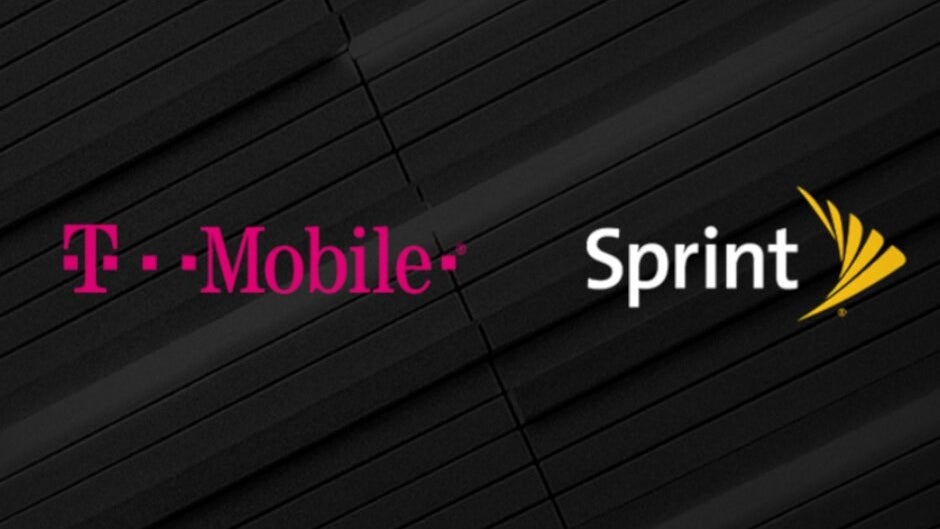T-Mobile expected to revise lower the price it will pay for Sprint

Announced on April 29, 2018, the $26.5 billion T-Mobile-Sprint merger has yet to close even though the carriers jumped through hoops to receive FCC and Justice Department approval. The only thing holding back the merger from closing is a lawsuit filed by 13 state attorneys general and the AG of Washington D.C. The suit seeks to block the transaction and the trial begins this coming Monday.
T-Mobile, the fastest growing of the four major U.S. carriers, is after Sprint for just one reason; the latter happens to own a rare commodity among U.S. wireless providers: 2.5GHz mid-band spectrum. And while T-Mobile did officially launch the first nationwide 5G network in the states today, it used its 600MHz low-band airwaves to do so. While the 600MHz signals travel farther and penetrates buildings better, they also don't provide the capacity and data speeds that mmWave 5G signals offer. T-Mobile is hoping that with Sprint's 2.5GHz airwaves, it can "...deliver a 5G network with both breadth and depth." In addition, with the spectrum it hopes to obtain in the Sprint deal, T-Mobile will be able to serve rural areas of the U.S. with better 5G coverage; that's enough to make most politicians smile.
Wall Street expects T-Mobile to cut the price of the deal
The current terms of the transaction call for Sprint stockholders to receive 0.10256 of a T-Mobile share for each share of Sprint they own. So if the deal closed today, Sprint holders would get $7.97 worth of T-Mobile stock for each Sprint share they own. Yet, Sprint closed the week at $5.53. This huge spread can mean two things; either investors are extremely convinced that the deal won't go through, or more likely, they believe that the merger will be restructured. And people close to the situation have told CNBC's David Faber that T-Mobile is indeed considering making a change to the terms of the merger. T-Mobile has the right to do this because the most recent merger agreement between the two companies has expired.

A trial that will determine the fate of the T-Mobile-Sprint merger will begin Monday
And just in case T-Mobile can't close on the merger and needs to come up with some mid-band spectrum from somewhere, the FCC is considering an auction of 280MHz of airwaves in the 3.7GHz-4.2GHz range. This auction could help raise as much as $80 billion for the U.S.
If the merger closes, it will set off a second series of transactions valued at $5 billion. Dish Network will pay that amount to Sprint in exchange for the carrier's prepaid businesses including Boost Mobile and Virgin Mobile. Dish will also receive 14MHz of Sprint's 800MHz spectrum, 9.3 million Boost Mobile customers, 7,500 retail locations and 400 employees. The satellite content provider will then sign a seven-year MVNO agreement with T-Mobile that will allow it to offer mobile service in its name even while it starts building a standalone 5G network.
In 2011, AT&T agreed to buy T-Mobile for $39 billion in a move that would have created the largest wireless operator in the states. But the Justice Department put the kibosh on that deal and as a result, AT&T had to give T-Mobile a consolation package consisting of $3 billion, a 3G roaming pact and 128 AWS markets. Some mark the beginning of T-Mobile's rise to that break-up offering.
In 2014, T-Mobile and Sprint discussed a merger and floated the idea in talks with the FCC and DOJ to see how they would respond; it was clear from the response of the regulatory agencies that such a deal did not have the votes to pass. Back then, it was Sprint seeking to purchase T-Mobile. But over the last five years, led by the departing John Legere, T-Mobile has become not only the fastest-growing but also the most innovative of the four major wireless operators in the U.S. And even though it could really use Sprint's mid-band spectrum, it is T-Mobile in the catbird's seat; in other words, at this point, Sprint has no choice but to accept any revision to the deal that T-Mobile seeks. Even though they will deny it, Sprint brass had pretty much considered its life as a standalone company over months ago.
During its fiscal second quarter, which ran from July through September, Sprint lost 91,000 postpaid phone customers. During the same three-month period, T-Mobile had 754,000 net postpaid phone additions.
Follow us on Google News













Things that are NOT allowed:
To help keep our community safe and free from spam, we apply temporary limits to newly created accounts: